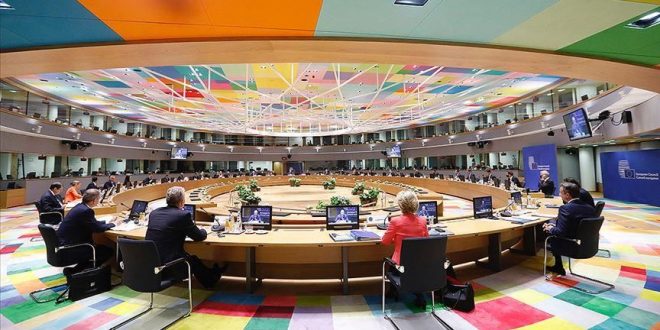After almost five days of sometimes bitter negotiations in Brussels, European Union leaders finally agreed on a massive €750bn ($859bn) post-coronavirus recovery package.
The summit began on Friday morning and saw more than 90 hours of talks, making it the longest summit since the meeting held in the French city of Nice in 2000 that lasted for five days.
The deal will focus on providing funding over three major pillars: creating reforms to help businesses recover from the Covid-19 pandemic, rolling out new measures to reform economies over the long haul, and investing to help protect from “future crises.” It will provide hundreds of billions of dollars in grants and loans to member states.
During the summit, member states were split between those hit hardest by the outbreak and keen to revive their economies, and those more concerned about the costs of the recovery plan. Sweden, Denmark, Austria, the Netherlands and Finland had opposed the €750bn recovery package. The group originally set €375bn as the limit and wanted conditions such as the right to block requests. However, Spain and Italy which were severely hit by the outbreak did not want to go below €400bn.
Another issue in the negotiations was the way disbursements would be linked to governments respecting the rule of law. Hungary and Poland both threatened to veto the package if it adopted a policy of withholding funds from nations who do not meet certain democratic principles.
Luxembourg Prime Minister Xavier Bettel said that in his seven years’ experience of European meetings he “had never seen positions as diametrically opposed as this.”
The recovery plan includes €390 billion worth of grants and €360 billion worth of loans due to a compromise with the so-called “frugal five” countries.
Member states will now have further technical negotiations on the package which will also need ratification by the European Parliament.
The European Commission will then borrow the €750bn on international markets and allocate the aid. There will also be a means by which member states can reject a spending plan.

European leaders’ reaction to the deal
“We did it! Europe is strong. Europe is united,” European Council President Charles Michel said at a press conference Tuesday. “This is a good deal, this is a strong deal, and most importantly, this is the right deal for Europe right now”. He added that this was the first time that members of the European Union were “jointly enforcing our economies against the crisis”.
French President Emmanuel Macron said it was a “historic day for Europe,” while Belgian Prime Minister Sophie Wilmes said that “the European Union has never before decided to invest so ambitiously in the future.”
Dutch Prime Minister Mark Rutte, leader of the “frugal group”, welcomed the agreement, but recognized the fractious nature of the talks. “We are all professionals, we can take a few punches,” he told reporters.
Austrian Prime Minister Sebastian Kurz shared a photo of the “frugals” early Tuesday, affirming that the final package was a “good result for the EU”.
European Commission President Ursula von der Leyen tweeted: “Today we’ve taken a historic step, we all can be proud of. But other important steps remain. First and most important: to gain the support of the European Parliament. Nobody should take our European Union for granted.”
The Guardian
 Lebanese Ministry of Information
Lebanese Ministry of Information



